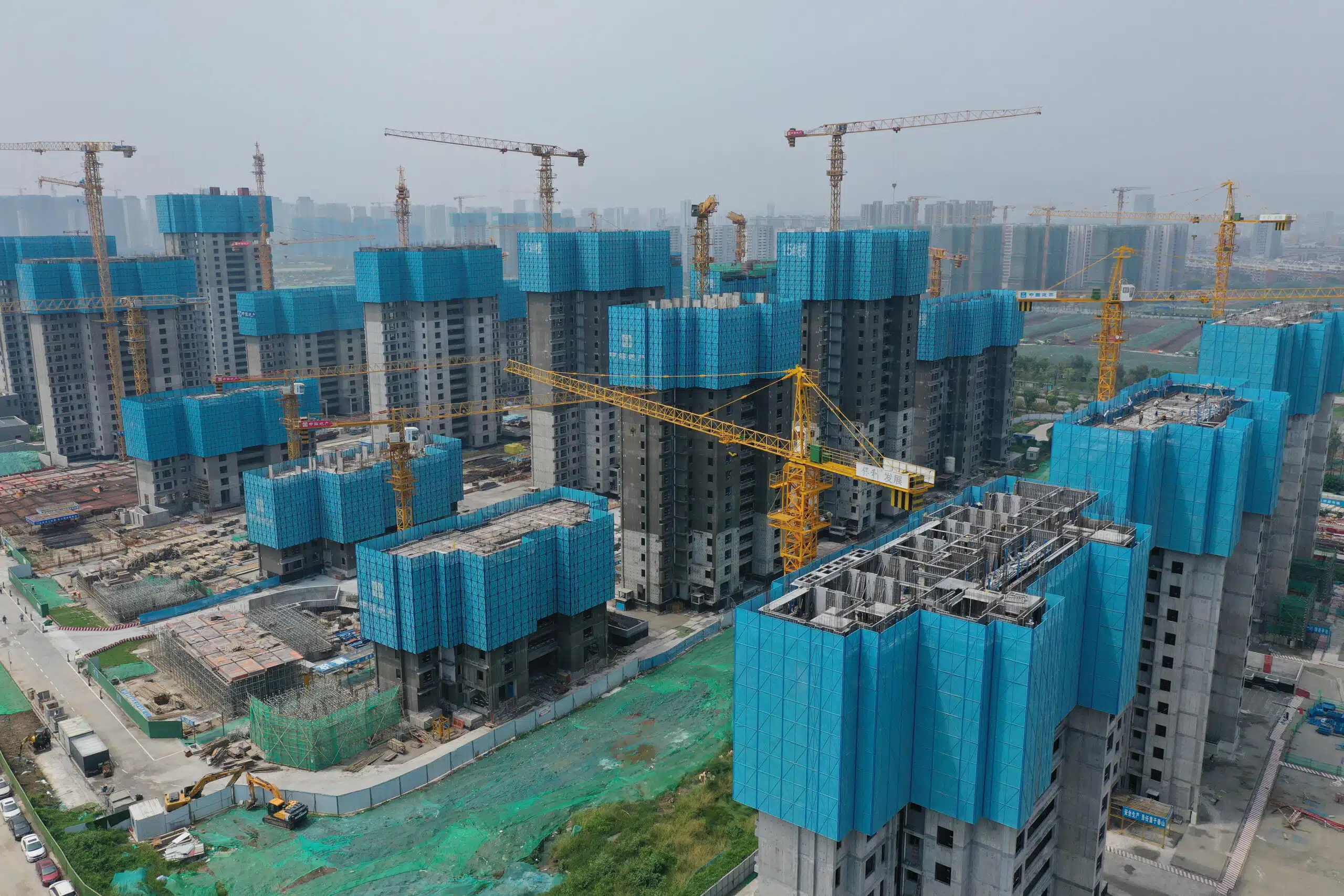China’s real estate crisis has intensified as two prominent real estate developers face severe financial problems that could affect the country’s entire economy and extend beyond its borders.
Evergrande, a prime representative of the problems facing China’s real estate industry, filed for Chapter 15 bankruptcy protection in New York on Thursday. The provision allows the company to keep its assets in the U.S. and facilitates cross-border bankruptcy proceedings during restructuring.
Evergrande Has Accumulated Record Debt
The petition filed by Evergrande, which defaulted in 2021 due to a liquidity crisis, was filed after the company’s Chinese unit received a notice from China’s securities regulator. The regulator’s notice informed the company of an ongoing investigation into possible violations related to disclosure practices. The company above is the world’s most indebted real estate developer, with over $300 billion in liabilities.
Country Garden, previously China’s top developer by revenue, is now at risk of defaulting in the coming weeks.
Country Garden is among a group of prominent real estate developers who managed to avoid default following the implementation of Beijing’s “three red lines” policy in 2020. The procedure addressed rising debt levels in the highly leveraged sector. The Red Lines set limits on the ratio of liabilities to assets, ensuring that companies maintain cash reserves of at least 100% of their short-term debt obligations.
Further Defaults Are Inevitable
As a result, a significant portion of Chinese home sales (about 40%) has experienced defaults by the respective responsible parties. Country Garden, which recently experienced two defaults on its dollar bond payments, is in a critical period until early September. During this time, the company must address concerns and alleviate anxiety about potentially falling into a similar financial situation.
As a result of the ongoing problems in the Chinese real estate sector, housing providers and buyers, who have often made substantial down payments, need help getting their apartments into ownership. To express their dissatisfaction with unfinished projects, buyers in many cities have organized mortgage boycotts.
According to Dan Wang, the esteemed chief economist at Hang Seng Bank in China, it can be observed that the government’s implementation of the three red lines policy has, to a certain degree, achieved the desired outcome of reducing leverage within the sector.
However, the magnitude of this transformation within such a brief timeframe is exceedingly significant… The circumstances above led to a deteriorating liquidity scenario for property enterprises.
New Home Sales Fell by 33% Or More
Declining confidence in the real estate sector has led to a corresponding drop in housing sales, making it difficult for developers to access the fixed assets needed to complete construction projects on time and meet interest obligations. According to the reputable rating agency S&P Global Ratings, new home sales among the top 100 real estate developers declined by 33% in July this year. Country Garden’s sales were down 60%.
Country Garden’s liabilities amount to a significant ¥1.4 trillion (£151.1 billion), about 60% of Evergrande’s liabilities. Country Garden, a well-known real estate developer, currently owns many housing projects across China, raising concerns about possible social unrest should construction cease. According to preliminary reports, localized protests are taking place near the company’s property in Guangdong province.
The company’s original commitment to delivering 700,000 housing units in the current fiscal year has yet to be met, as the total number of completions in the first half of the period fell well short of that target. According to a recent statement, the company recognized that the industry is currently going through a period of significant difficulties that can be described as unprecedented.
China’s real estate market is the largest on a global scale. However, there have been fears that financial problems could affect other sectors of the national economy and overseas bondholders. According to Bloomberg, BlackRock reported $351.9 million in dollar-denominated Country Garden bonds as of Aug. 11.
China’s Economy Is Recovering Very Slowly
China’s economic recovery from the Covid-19 pandemic has been sluggish in various sectors, with a marked increase in youth unemployment and a decline in retail sales. The People’s Bank of China implemented a 15 basis point rate cut this week, resulting in a new interest rate of 2.5%. This adjustment is the most significant rate cut in three years. The economy has seen a deflationary trend for the first time in two years.
However, it should be noted that Beijing has refrained from any significant stimulus measures. Analysts argue that more than interest rate adjustments are needed to stimulate consumer demand and boost confidence.
The current unrest comes simultaneously as the central bank attempts to counteract the depreciation of the Chinese currency. State-owned banks reportedly buy the yuan to smooth the currency’s devaluation. Notably, on Friday, the bank set the average point of daily yuan trading at 7.2006 per dollar, which exceeded analysts’ estimates.
China’s securities regulator recently unveiled a series of measures to boost investor confidence in the country’s stock markets. The Securities Commission has spoken out about a possible increase in trading hours and lower broker transaction fees. The Shanghai and Shenzhen Stock Exchanges announced their intention to reduce transaction fees for stock transactions by 33%.
The dynamics of Chinese shares show a steady decline: the Shanghai Composite index has noticeably decreased by 2% over the last month. A similar fall in the Shenzhen index exceeded 4%. On Friday, the Hong Kong stock market saw a significant drop, with stocks moving into a bear market, reflecting a 21% decline from earlier this year’s previous peak.


